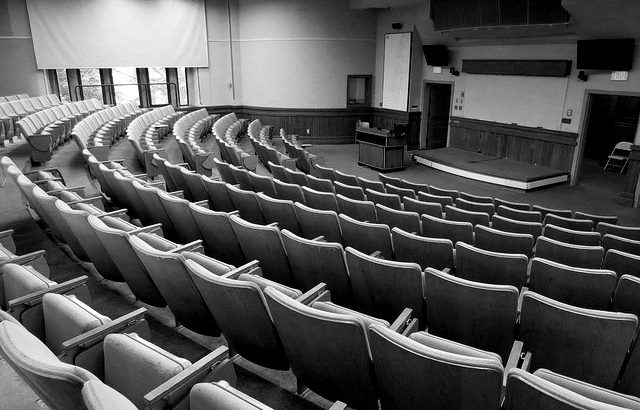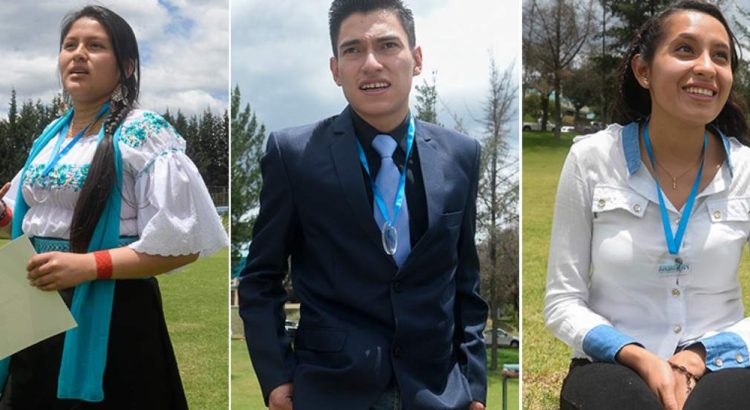Educación Superior y la tentación neoliberal: Una entrevista con Henry A. Giroux
Si la universidad es para sobrevivir, los profesores van a tener que reconsiderar su papel como intelectuales públicos críticos, conecte su beca a los problemas sociales más amplios y aprender cómo escribir para y habla a un público más amplio. De esta cantidad, el crítico cultural y decano de la pedagogía crítica Henry Giroux está convencido.
—————————-
If the university is to survive, faculty are going to have to rethink their roles as critical public intellectuals, connect their scholarship to broader social issues and learn how to write for and speak to a broader public. Of this much, the cultural critic and doyen of critical pedagogy Henry Giroux is convinced.
Almantas Samalavicius: The neoliberal agenda that came into being a few decades ago in the northern hemisphere, and was eventually globalized, now seems to threaten systems of higher education worldwide. The persistence of this phenomenon has become alarming to many who care about its social consequences. As you have correctly and insightfully observed in your 2014 book Neoliberalism’s War on Higher Education, «a full-fledged assault is also being waged on higher education in North America, the United Kingdom and various European countries. While the nature of the assault varies across countries, there is a common set of assumptions and practices driving the transformation of higher education into an adjunct of corporate power and values.» Why is this agenda taking over societies that are so different from each other? What makes neoliberalism so overwhelmingly powerful and resistant to criticism as well as to social action? Why do governments give themselves up to neoliberal ideology, even if they claim to represent quite different ideological positions?
Henry Giroux: For all of its differences, neoliberalism brings together a number of elements that makes it appear almost insurmountable, if not universal, in its ability to normalize itself and convince the rest of the world that there is no alternative as Margaret Thatcher once argued.
First, it has created a new set of power relations in which power is global and politics is local. The financial elite now operate in the global flows of capital and have no allegiance to the nation-state or to the social contract that mediated between labour and capital in the post-war period. This separation points to a crisis of agency on the part of the state and a crisis of politics in terms of the ability to develop social formations that can challenge capital on a global rather than simply a local scale. The nation-state can no longer make concrete decisions on the economic level or create social provisions necessary to limit the effects of the market and offer the most basic services for people.
At the nation level, state sovereignty has been transformed into economic sovereignty. Governments don’t give themselves up, they have been hijacked by the institutions, power and wealth of the global elite. There is no way for states to challenge global forms of governance. We must remember that neoliberalism is very powerful not only because of its economic structures but also because of its pedagogical and ideological power. It not only consolidates wealth and power in different wars for the ultra-rich, it also controls all of those cultural apparatuses and pedagogical sites that function to produce identities, desires and values that mimic the market. In this sense it is a mode of governance that controls all of social life and not simply the market.
As a mode of governance, it produces identities, subjects and ways of life free of government regulations, driven by a survival of the fittest ethic, grounded in the idea of the free, possessive individual and committed to the right of ruling groups and institutions to accrue wealth removed from matters of ethics and social costs. As a policy and political project, neoliberalism is wedded to the privatization of public services, the selling off of state functions, the deregulation of finance and labour, the elimination of the welfare state and unions, the liberalization of trade in goods and capital investment and the marketization and commodification of society. As a form of public pedagogy and cultural politics, neoliberalism casts all dimensions of life in terms of market rationality.
As public higher education withers in a number of countries, either various policies of privatizing higher education are introduced or the logic of the market takes over. More and more universities and other institutions of higher education are being run as if they were large multinational companies seeking immediate profit; politicians and administrators speak out for efficiency, marketability of knowledge, institutional sensitivity and adaptability to the market, etc. What do you think will be the social and cultural price if this tendency continues to retain the upper hand? And do you see any possibilities to resist this global transformation of universities as well as higher education in general?
If this tendency continues, it will mean the death of critical thinking and higher education will simply become another ideological apparatus dedicated to training rather than education, stifling critical inquiry rather than nurturing it — and will narrow if not kill the imagination rather than cultivate it. One consequence will be that knowledge will be utterly commodified, students will be defined in utterly instrumental terms and the obligations of citizenship will be reduced to the private orbits of self-interest, consumption and commodification. This nightmare scenario will reinforce one of the central tendencies of totalitarianism; that is, a society dominated by thoughtlessness, stupidity and diverse modes of depoliticization.
In the United States and in many other countries, many of the problems in higher education can be linked to low funding, the domination of universities by market mechanisms, the rise of for-profit colleges, the intrusion of the national security state and the lack of faculty self-governance, all of which not only contradicts the culture and democratic value of higher education but also makes a mockery of the very meaning and mission of the university as a democratic public sphere. Decreased financial support for higher education stands in sharp contrast to increased support for tax benefits for the rich, big banks, military budgets and mega corporations. Rather than enlarge the moral imagination and critical capacities of students, too many universities are now wedded to producing would-be hedge fund managers, depoliticized students and creating modes of education that promote a «technically trained docility.»
Strapped for money and increasingly defined in the language of corporate culture, many universities are now driven principally by vocational, military and economic considerations while increasingly removing academic knowledge production from democratic values and projects. The ideal of the university as a place to think, to engage in thoughtful consideration, promote dialogue and learn how to hold power accountable is viewed as a threat to neoliberal modes of governance. At the same time, higher education is viewed by the apostles of market fundamentalism as a space for producing profits, educating a docile labour force and a powerful institution for indoctrinating students into accepting the obedience demanded by the corporate order.
However, it is crucial to remember that power is never without resistance and this suggests that faculty, students, unions and broader social movements must fight to regain higher education as a democratic public sphere. In addition, it must be made clear to a larger public that higher education is not simply about educating young people to be smart, socially responsible and adequately prepared for what ever notions of the future they can imagine, but that higher education is central to democracy itself.
Without the formative culture that makes democracy possible, there will be no critical agents, no foundation for enabling people to hold power accountable and no wider foundation for challenging neoliberalism as a mode of governance and political and ideological rationality. The struggle over higher education and its democratic misuse cannot be separated from the struggle to undo the reign of markets, neoliberalism and the ideologies informing this savage market fundamentalism. We see this struggle being taken up in precisely these terms in many countries in Latin America, the United Kingdom and the United States. Time will tell if they can spark a global movement to transform both higher education and the political and economic system that holds it hostage.
The American research university has been a model institution of higher education during the last half-century in many places of the globe. Despite the spectacular ascent of multiversity, proclaimed as early as 1963 by Clark Kerr in his famous book The Uses of the University, the production of research is in fact just one of the university’s functions. However, this function is taken for granted and even fetishized. Meanwhile, the teaching and education of informed, responsible citizens, capable of critical scrutiny as well as many of the other tasks of higher education, have been largely neglected and ignored. Do you see this imbalance in the functions of the university as threatening? What are the potential dangers of imagining the university exclusively as a research enterprise that relinquishes any commitment to teaching and cultivating a critical consciousness?
The role of research in the university cannot be separated from the modes of power that influence how research is defined and carried out. Under the reign of neoliberalism and given the encroaching power of the military-industrial complex, research is prioritized and rewarded when it serves the interests of the larger society. In this instance, research becomes armed and instrumentalized, serving largely the interests of powerful corporations or the ongoing death-machine of the military and its corporate allies. Research that matters informs teaching and vice versa. Universities are not factories and should not be defined as such. They are there to serve faculty, students and the wider community in the interests of furthering the public good. When the latter become subordinated to a research agenda that is simply about accumulating capital, the critical, moral and political essence of the university withers and everybody who believes in a democracy is marked for either failure, exclusion or punishment.
The corporate university is the ultimate expression of a disimagination machine, which employs a top-down authoritarian style of power, mimics a business culture, infantilizes students by treating them as consumers and depoliticizes faculty by removing them from all forms of governance. Clearly all of these defining relations produced by the neoliberal university have to be challenged and changed.
Traditionally, the university has been understood as community of scholars and students. However, there are multiple reasons for the university hardly existing any more in these terms. Back in the 1970s, the American social thinker Paul Goodman still articulated a vision of a community of scholars but during recent decades, academics either function simply as obedient personnel afraid to lose their diminishing rights and «privileges» (if there are any at all) or otherwise their collective voice is hardly heard. How can public criticism get back to where it should belong — i.e. in the universities?
The increasing corporatization of higher education poses a dire threat to its role as a democratic public sphere and a vital site where faculty can address important social issues, be self-reflective and learn the knowledge, values and ideas central to deepening and expanding the capacities required to be engaged and critical agents. Unfortunately, with the rise of the corporate university which now defines all aspects of governing, curriculum, financial matters and a host of other academic policies, education is now largely about training, creating an elite class of managers and eviscerating those forms of knowledge that conjure up what might be considered dangerous forms of moral witnessing and collective political action.
Many faculty have bought into this model because it is safe for them and they get rewarded. If the university is to survive, faculty are going to have to rethink their roles as critical public intellectuals, connect their scholarship to broader social issues and learn how to write for and speak to a broader public. Neoliberal modes of governance reinforce the worse dimensions of the university: specialisms, a cult of distorted professionalism, a narrow empiricism, unwillingness to work with others and a mode of scholarship steeped in obtuse and often mind-numbing discourse. All of this must change for faculty or they will not only be unable to defend their own labour as academics, they will continue to lose power to the corporate and managerial elite.
Higher education is intrinsically connected to what is usually termed as a public good, however, as you penetratingly observe «under the current regime of neoliberalism, schools have been transformed into a private right rather than a public good.» Do you think it is possible for higher education to reclaim its role in creating and providing a public good or at least providing a setting where a public good might be created? Under what conditions can are universities able to perform such a task? How can they get support from the public? Can one count on public intellectuals at all?
Universities are suffering from a crisis of legitimacy and a crisis of agency. If they are going to regain their role as a public good, faculty, students and other educational progressives are going to have to strongly challenge the current role of higher education. This means that faculty, students and various groups outside of the university are going to have to engage in a range of acts of civil disobedience extending from occupying classrooms to mobilizing larger populations in the street to force the hand of corporate power and its allies.
We saw this happen in Quebec a few years ago and such actions must be repeated on a global level. Public intellectuals are absolutely necessary to participate meaningfully in this role. We rarely hear about them but there are plenty of academics acting as public intellectuals, not only in the liberal arts, social sciences and humanities, but also in the health sciences where faculty are working closely with communities to improve the conditions of the often poor residents who reside in these communities. While public intellectuals can ask important questions, provide a critical language, help write policy and work with social movements, any real change will only come from the outside when social formations, educators and other progressive groups can force the hands of political power, governance and legislation.
Despite higher education’s present orientation toward the market and the reign of an ideology that glorifies the market even in those spheres where it is not supposed to and cannot work, what is your vision of the coming tendencies in higher education during the next decades? Do you expect the present trends concerning the marketization of higher education to be finally reversed? Or will we witness the final triumph of neoliberalism?
I am not optimistic but hopeful. That means, I don’t think progressive change will come by default, but only by recognizing the problems that have to be faced and then addressing them. The latter is a matter of real hope. The cruelty, barbarism and violence of neoliberalism is no longer invisible, the contradictions it produces abound and the misery it inflicts has become extreme. Out of the ashes will hopefully rise the phoenix of hope.













 Users Today : 78
Users Today : 78 Total Users : 35460209
Total Users : 35460209 Views Today : 112
Views Today : 112 Total views : 3418895
Total views : 3418895